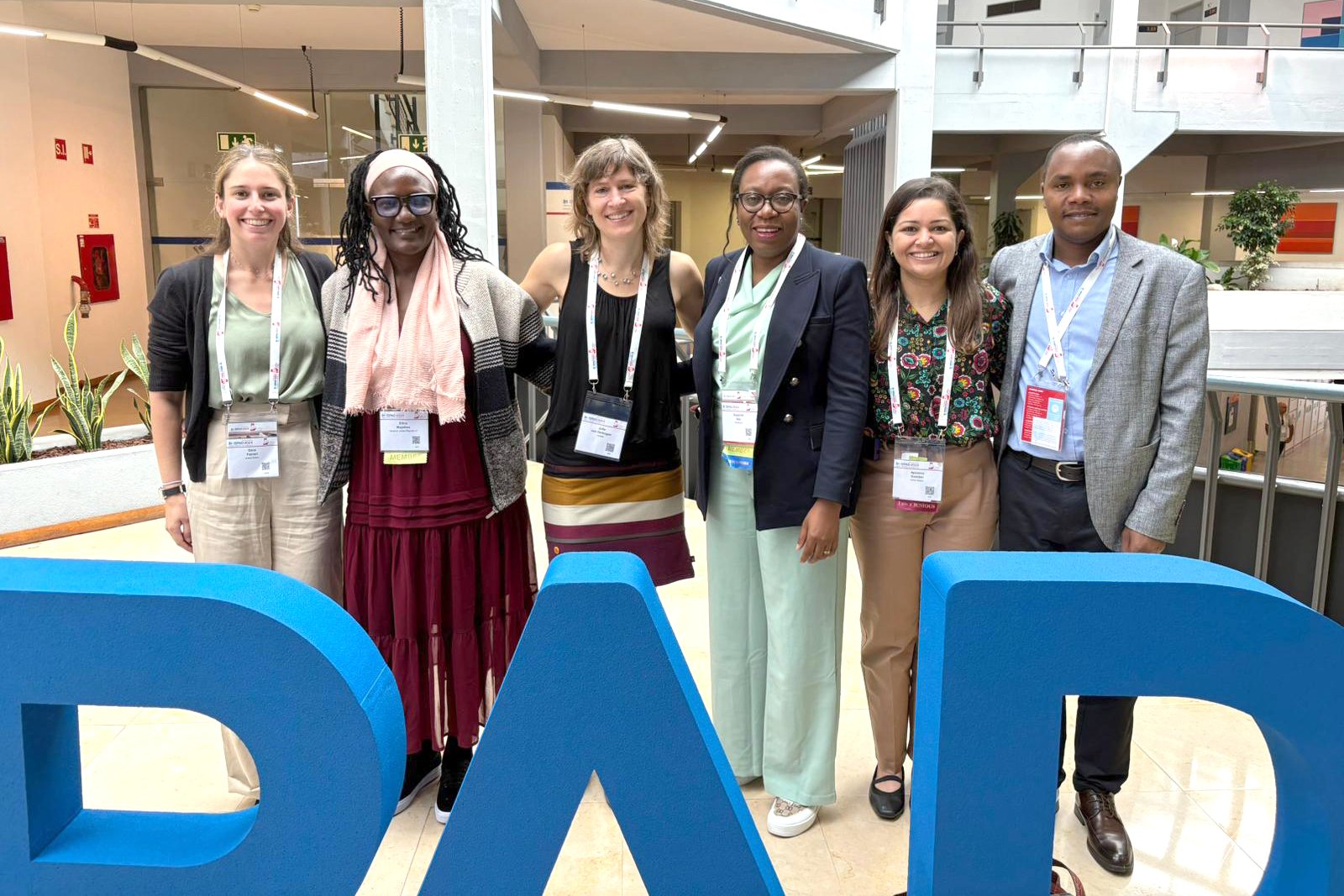“Nothing For Us, Without Us”
Members of the NCDI Poverty Network’s Diabetes Expert Group met for the first time during the International Society for Pediatric and Adolescent Diabetes conference in October. Shown from left are Gina Ferrari, a type 1 diabetes and global health equity research fellow at the Network; Dr. Edna Siima Majaliwa, a pediatrician and pediatric endocrinologist at Muhimbili National Hospital in Dar es Salaam, Tanzania; Dr. Julia Von Oettingen, a pediatric endocrinologist at the Montreal Children’s Hospital; Dr. Suzanne Sap, a diabetes expert at Université de Yaoundé I in Cameroon; Dr. Apoorva Gomber, associate director of advocacy for the Network; and Gedeon Ngoga, a clinical advisor for the Network.
A new spotlight shone at the annual convening of the International Society for Pediatric and Adolescent Diabetes (ISPAD).
“This year, for the first time, there was a huge focus on including patient advocates as key stakeholders in the guidelines for type 1 diabetes care globally,” said Dr. Apoorva Gomber, associate director of advocacy for both the NCDI Poverty Network and the Center for Integration Science in Global Health Equity at Brigham and Women’s Hospital.
The event—held from October 16 to 19 in Lisbon, Portugal—celebrated the 50th anniversary of ISPAD’s work in advancing diabetes care for children and young people worldwide. It was the fifth ISPAD conference for Dr. Gomber, who said patient advocates—using the slogan “Nothing for us, without us”—participated as delegates at this year’s event. The patient advocates will also be the focus of a new special interest group.
Two other Network members—Gina Ferrari, a type 1 diabetes and global health equity research fellow, and Gedeon Ngoga, a clinical advisor—joined Dr. Gomber in promoting PEN-Plus at the event. Ferrari gave a PEN-Plus update to ISPAD’s Low-Resource Settings Special Interest Group, and Ngoga presented an overview of diabetes education in Rwanda at a session titled, “Teamwork Is the Dreamwork.”
Additionally, two Center for Integration Science papers on a study of continuous glucose monitoring in Malawi were cited during a plenary presentation about expanding the use of diabetes technology in low-resource settings.
Increased availability of continuous glucose monitoring is included in the recommendations listed in the Declaration of Lisbon, an ISPAD statement born from the event that reaffirms the society’s commitment to optimal care for children and young people with diabetes. The declaration also sets a framework for continued improvements moving forward.
The 2025 ISPAD conference will be held in Montreal, and NCDI Poverty Network team members are already viewing the event as a potential opportunity to highlight both PEN-Plus and the Network’s ongoing work to bridge gaps in care in low-resource settings.

